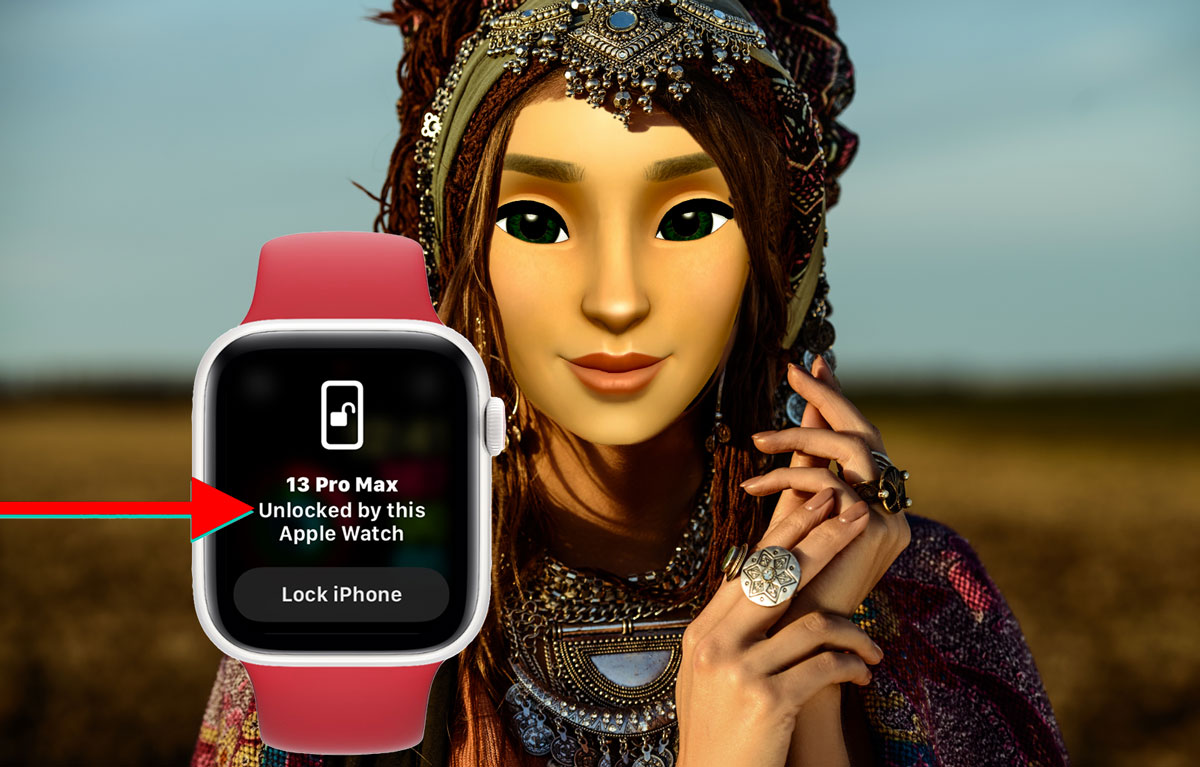We’ve all been there. In a dark room or other less than ideal faceID environment and trying unsuccessfully to open an iPhone just by swiping up and looking. It can be frustrating, especially if it takes multiple tries and then you still have to type in a passcode. Which is not always possible if your hands are not free etc.
If I’m wearing a mask or it’s too dark in my bedroom and iPhone doesn’t recognize my Face, and won’t unlock right away, there is now an easy alternate option to open it with Apple Watch. Rather than having to type in my passcode, the watch will “magically” open unlock the phone!
In the video above you can see how you can save time and hassle when you need to unlock your phone (if FaceID doesn’t work for any reason). Apple first introduced this feature back with the iOS 14.5 and WatchOS 7.4 update earlier in 2021.
The great news is you don’t have to have the latest iPhone 13 or Apple Watch 7 to use this feature – all you need to have is the iPhone 6s or Apple Watch Series 3 or newer.
On your iPhone: Open up Settings, Scroll down until you see FaceID & Passcodes, You will be promoted to enter your passcode (or not!).
Scroll down to “Unlock with Apple Watch” and tap on the toggle to turn it on (will be green if on). Then a pop up will appear for you tp confirm you want to unlock your iPhone with your Apple Watch. Click Turn on.
If you have not yet set a passcode for your Apple Watch you will be required to create a simple 4 digit pin.
When you need to unlock your iPhone without your face (due to mask, low light etc) just swipe up.
If the passcode screen shows up or the phone doesn’t immediately open you can hold your Apple Watch near your iPhone to unlock.
You should get both haptic vibration on your wrist along with a prompt alerting you that your Apple Watch has unlocked your iPhone.
In multiple tests with various iPhone models / watches, we saw various results, sometimes the iPhone would just open by itself, other times it was necessary to swipe and then, in the rarest cases, we had to hold the watch near the phone.
It appears that the phone was “learning” to use the watch to open whenever needed. That is all you have to do, in the future when you go through the process of unlocking your phone and Face ID isn’t working.
